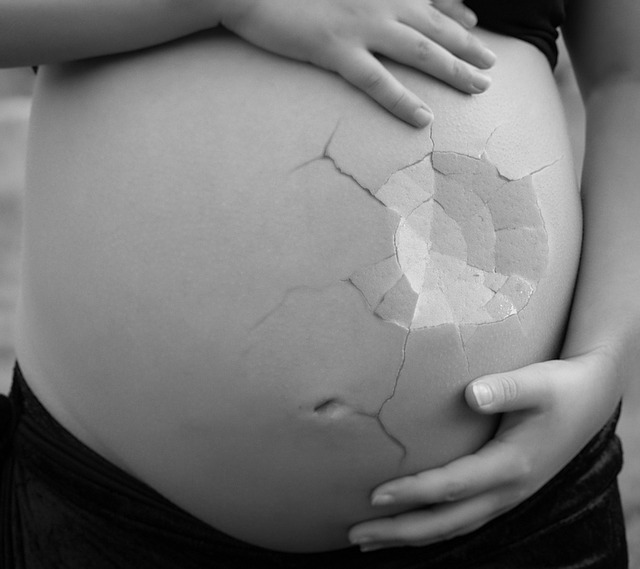Miscarriage is a red flag during pregnancy. It causes a lot of anxiety and stress in a woman. A woman should understand that it is not her fault and it is important to stop worrying and learning about the causes for it, probabilities of its occurrence, its threatening signs and measures to prevent it. This article will give you all the information that you need to know about miscarriage.
What is a miscarriage?
A miscarriage is seen as a sudden loss of pregnancy soon before reaching the twentieth week of pregnancy. The first trimester of pregnancy is very crucial, as it leads to ten to twenty percent of miscarriages. An early miscarriage happens when it happens before twelve weeks and a late miscarriage is when it occurs in the 2nd trimester between the twelfth and the twenty-fourth week of pregnancy.
Different types of miscarriage
Miscarriages can differ in the way it occurs in a woman. Some of the common types of miscarriages are described below:
- Threatened miscarriage
- Complete miscarriage
- Incomplete miscarriage
- Missed, silent and delayed miscarriage
- Recurrent miscarriage
- Septic miscarriage
- Blighted ovum miscarriage
Causes Of Miscarriage
These are the major causes behind the occurrence of a miscarriage:
Chromosomal abnormalities: This is one of the most common reasons for miscarriages that happen in the 1st trimester. A chromosome is a structure that holds genes. Both the sperm and the egg bring twenty-three chromosomes to the embryo. Fault in any one of these chromosomes leads to genetic abnormalities and prevent further growth of the embryo.
Hormonal abnormalities: Imbalance in the levels of hormone prevents the fertilized form of an egg from getting implanted. In addition to it, hormonal issues, such as PCOS, increases the chance of miscarriages.
Cervical or uterine problems: Some form of congenital uterine abnormalities, uterine adhesions, uterine fibroids, or a weak or an abnormal cervix impact the blood circulation to the placenta or prevent the egg from implantation.
Chronic ailments: Untreated diabetes, thyroid, heart diseases, liver diseases, kidney and autoimmune ailments create an inadequate uterine environment for the development of an embryo.
High fever: An abnormal fever that goes beyond 102° during the first trimester of pregnancy, damages the embryo and also results in loss of pregnancy.
Factors That Enhance The Risk Of Miscarriage
Your lifestyle habits and age can impact fetus development, thereby increasing the possibilities of miscarriage. Some of the key factors are:
- Smoking, drugs and / or drinking
- Previous history of miscarriages
- Being overweight or underweight
- Malnutrition or poor diet
- Past trauma
- Certain medications like non-steroidal anti-inflammatory medicines
- Environmental toxins
- Conceiving within 3 months of delivering a baby
- Harmful radiation or chemical exposure
- untreated thyroid disease and diabetes
- hormonal issues
- infections
- obesity
- cervix issues
- abnormally shaped uterus
- food poisoning
- high blood pressure
- specific medicines
Signs of Miscarriage
The signs of miscarriage vary based on the causative factor and gestational age. It is advised to take the assistance of your doctor if you relate to any of the below symptoms:
- Bleeding or spotting from the vagina
- Blood clots or tissues passing through the vagina
- Pain in the abdomen or lower back
- Mild to acute cramps
- Sudden weight reduction
- A reduction in pregnancy signs, such as vomiting and nausea
Your doctor will perform the required tests, pelvic examination and ultrasound scan to find out the cause of these signs of miscarriage.
Treatment For Miscarriage
The treatment depends on the type of miscarriage. Based on the identification, your doctor is likely to suggest any of the following treatments:
Expectant management: It involves regular check-ups to find whether or not the remaining pregnancy tissue has naturally passed out.
Medical management: Medications like misoprostol are given to contract the uterus to help the pregnancy tissue to pass out completely from the body.
Surgical management: The remaining pregnancy tissue is removed via curettage and dilation. A curette or a suction instrument will be used to remove the tissue from the uterus.
Prevention of a Miscarriage
Follow below safety precautions to stay strong and healthy during pregnancy.
- Have a balanced and healthy diet
- Avoid drinking alcohol, using drugs or smoking
- Maintain a right body weight before conception
- Take prenatal vitamins and folic acid supplements during pregnancy.
- Go for regular blood tests, prenatal check-ups
- Avoid caffeinated drinks
- Anger can cause distress to the infant and can even result in miscarriage. So, avoid anger and make sure that your mental and physical health is doing well.
- Practice Yoga, deep breathing and meditation to manage stress levels
- Avoid environmental hazards such as x-rays, infectious ailments, and radiation.
Also read: How to control your anger during pregnancy
Conclusion
Miscarriage is not a rare experience; it is commonly seen nowadays in women. However, that does not make things easier for a pregnant woman. Its detection not just impacts the overall well being and health of a pregnant woman but also the relationship she has with her friends, family, partner, and others. A woman in such a traumatic situation feels sad and depressed and even blame herself for the incident.
It is required for a woman to take measures to heal herself emotionally by understanding the causes of miscarriage which enhances the risk and what kind of medical care is needed? This will put her in a better position to deal with it.

